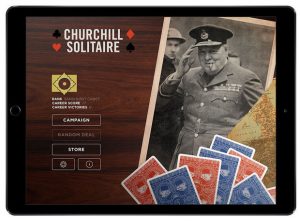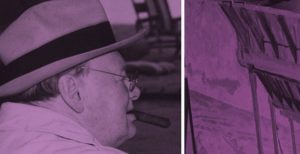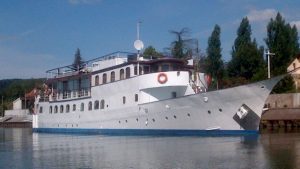
Bulletin #92 - Feb 2016
Meet the Director
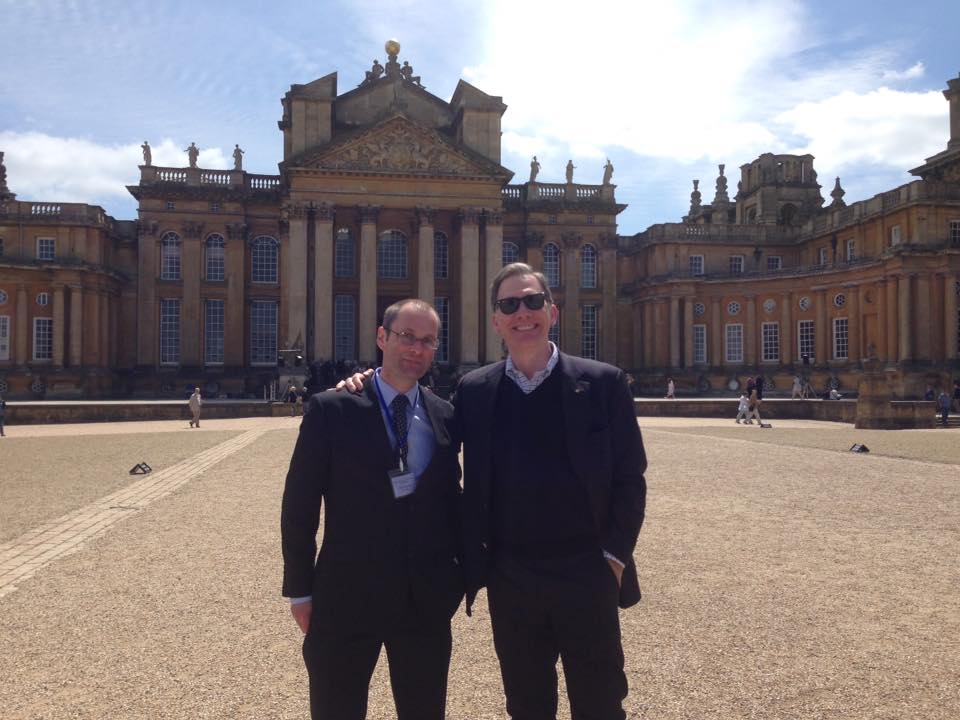
January 16, 2016
Q & A with Allen Packwood, Director of the Churchill Archives Centre
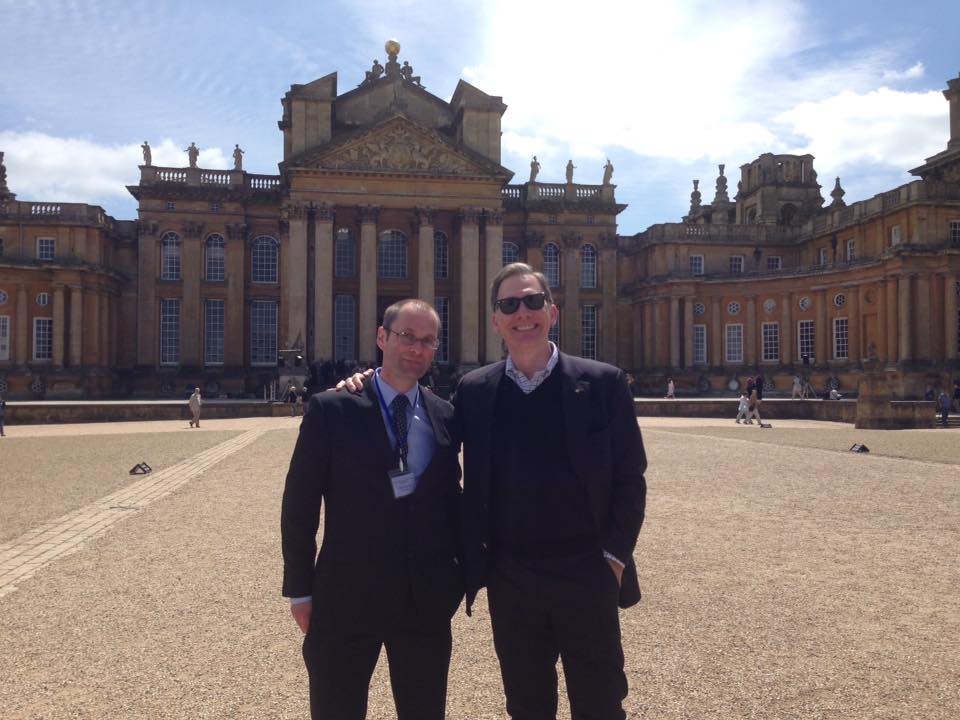
The Chartwell Bulletin recently discussed with Allen Packwood (above left at Blenheim Palace with Finest Hour editor David Freeman) his responsibilities as Director of an archive that houses the papers of Sir Winston Churchill and three other British prime ministers along with hundreds of their contemporaries.
CB: How did you come to be Director of the Churchill Archives Centre?
AP: By luck! I have always been interested in history, and did an MPhil in Medieval History at Sidney Sussex College, Cambridge. I started volunteering in the muniment room and got hooked on working with archives. That led to yet another post graduate qualification (at which point my parents despaired of me ever earning a living) followed by three years in a local government archive, before Piers Brendon was foolish enough to employ me as an archivist working on the Churchill Papers here at the Archives Centre. The rest, as they say, is history, but that it is literally true in this case—and the most interesting history at that!
CB: What do your duties as Director include?
AP: It may be easier to list what is not included. I am not sure I have ever seen a job description, but it includes liaising with depositors of archives and their families, raising awareness of the collections, helping researchers, planning major projects and exhibitions, managing the expert Archives Centre team, and getting out chairs for meetings. There is no ordinary day, and that is what makes it such great fun.

2024 International Churchill Conference
CB: How has the archive grown, and how has this affected the operation?
AP: I like to joke that we are the equivalent to four American Presidential Libraries, with the personal papers of Prime Ministers Churchill, Margaret Thatcher, John Major and—shortly—Gordon Brown, but it is actually a rather different beast; a repository and research centre with about 600 collections. The Centre has grown in terms of collections, physical space, number of staff, and number of researchers, and managing it has become gradually more complex. We do not receive State funding, and a major ongoing challenge is to ensure that the endowment keeps pace with the growth. This, combined with a higher public profile, has led us to develop strategic partnerships, as we can achieve far more when working with others. Churchill 2015 was probably the culmination of this strategy.
CB: What is a typical day for the archives?
AP: The archives sit in their boxes in the secure strong room areas, protected by state of the art fire detection and suppression systems, anxiously awaiting the summons of a researcher. When called upon they are produced under supervised conditions and may be photographed, digitized, or exhibited.
CB: What are some of the intriguing things about Churchill you have learned as Director?
AP: The most self evident thing I have learned is that he had an incredibly fertile and active mind, and the most amazing capacity for both words and work. His papers are incredibly rich and are constantly revealing new insights, into him and his era and contemporaries.
CB: Have you noticed any trends through the years in Churchill studies?
AP: There has certainly been a trend to look beyond the famous speeches and the political correspondence. Studies by David Reynolds, Peter Clark, David Lough, and others all illustrate the value of looking at the literary, personal, and financial material. This has helped give a more rounded historical view of Churchill by highlighting his intellectual concerns and the broader environment in which he was working.
CB: What are some of the things the archive does to promote Churchill studies in schools?
AP: We have helped Bloomsbury create the “Churchill For Schools” website, which Laurence Geller (Chairman of The Churchill Centre) has so kindly supported and which provides mediated access to the “Churchill Archive On-line” for every school that signs up.
CB: Do you have any stories about people visiting the archive that are particularly memorable?
AP: Some will have to be kept for my memoirs. But I do remember Margaret Thatcher visiting our New Wing and coming face to face with an Argentine flag, kept by Nicholas Barker as a trophy of war after the Falklands conflict. She announced that we should add a sticker saying “Defeated!”
CB: What responsibilities are involved in archiving digital collections such as those of former Prime Minister Margaret Thatcher?
AP: The physical process of digitization has got easier as images capture and storage costs have come down, but the original material still has to be handled sensitively. It cannot be fed through the machines. While the real burden for the Archives Centre is in policing the online publication process so as to ensure that all copyrights are respected and cleared. A collection like the Churchill or Thatcher Papers contains thousands of third party copyrights.
CB: What does Allen Packwood do when he is not immersed in the Churchill Archives?
AP: He drives his two daughters to and from their social engagements. Sometimes he attempts to run, and sometimes he falls off his bike (I currently have four stitches in my head and a fractured elbow). He is often not to be seen walking a black dog in the dark while wearing a black coat.
To watch a video of Allen discussing the addition of the Churchill Papers to UNESCO’s World Memory Register, please CLICK HERE.
Subscribe
WANT MORE?
Get the Churchill Bulletin delivered to your inbox once a month.
